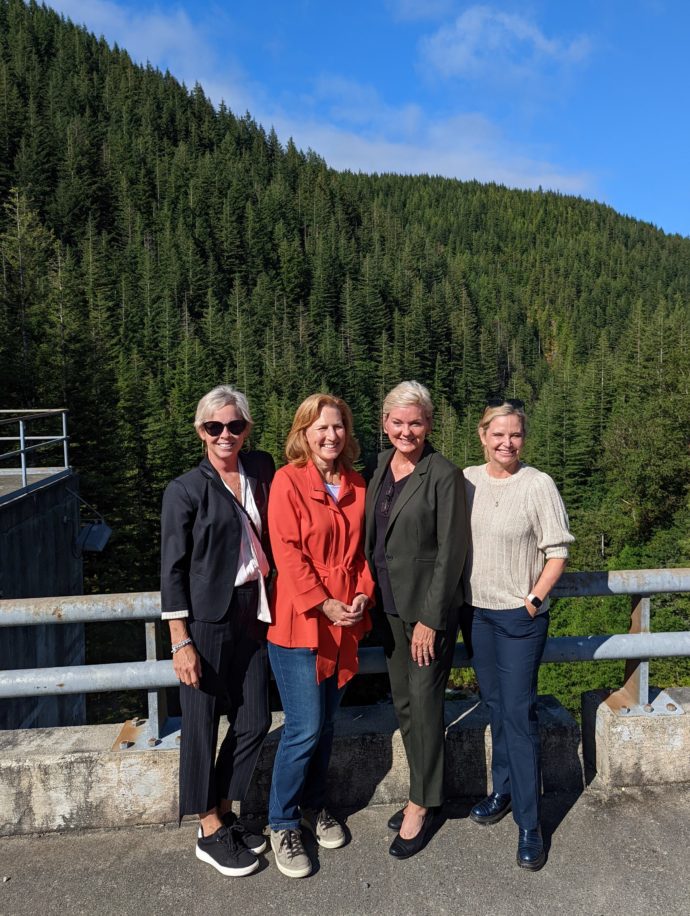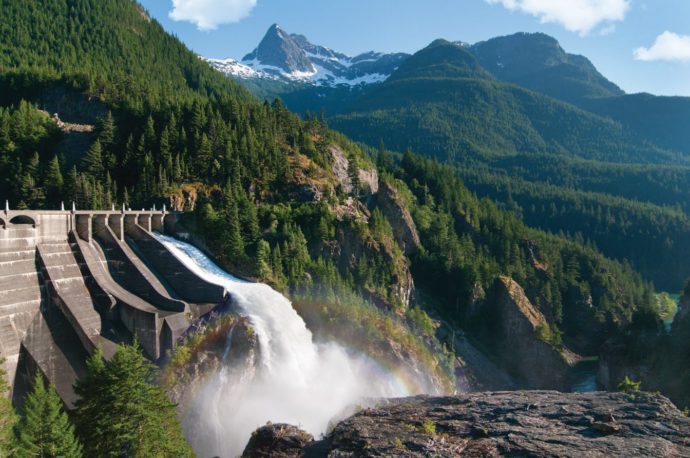
Mike Haynes is the assistant general manager for Seattle City Light and serves as board chair for the National Hydropower Association. As we celebrate National Hydropower Day, Mike reflects on the impact of the vital resource that powers our service area and beyond.
Hydropower is the foundation of the Pacific Northwest’s power system. At Seattle City Light, we are the stewards of an impressive hydroelectric system and the first municipal utility in the U.S. to own and operate a hydroelectric power plant, the Cedar Falls Hydroelectric Project started in 1902.
For more than a century, hydropower has powered our region and nation with clean, renewable energy. In the past few decades, solar panels and wind turbines have often generated more attention when it comes to renewable energy. In the meantime, as climate change accelerates, there’s a clean, reliable energy source, and it’s a powerful one: hydropower. To collectively recognize hydropower’s contributions to bolstering the nation’s clean energy infrastructure, the National Hydropower Association has declared Aug. 24 as National Hydropower Day.
City Light’s electricity primarily comes from hydroelectric energy. We own and operate seven hydroelectric facilities that typically supply more than half of our customers’ power needs and comprise 86% of our power mix. Our hydro system is the backbone to our resource portfolio and key to our commitment to carbon neutrality. We were the first electric utility in the nation to become carbon neutral in 2005, and we remain carbon neutral today.
The theme for National Hydropower Day 2022 is Cleaner Communities. As an industry we know that hydropower is the second largest source of renewable energy in the U.S., yet the public isn’t as aware of the value hydropower provides as a climate solution. We must manage our hydro resources from water-to-wire to bring clean power to our customers. Alongside delivering power is the work we do to preserve the natural environment surrounding our facilities. I was drawn to City Light 22 years ago because our culture demands effective and responsible stewardship of our ecosystems.
In addition to generating electricity, our facilities provide opportunities for recreational activities such as camping, fishing and hiking. We are also committed to maintaining our excellent record of regulatory compliance and environmental stewardship, including the support of ongoing programs for the protection of fish; plants; animals; and other natural, cultural, and historic resources.
You can’t have a reliable grid without hydropower. Hydro can generate power when the sun is not shining, and the wind is not blowing. The hydropower system can be operated to adjust its generation up or down quickly to meet fluctuations in demand. It is essential to strengthening the grid and providing not only clean, but affordable energy for our customers. It pairs perfectly with other renewable energy resources, like wind and solar. As part of a regional grid that enables other renewables, we are strengthening these variable resources and extending our commitment to cleaner communities beyond our service area.
However, as we face a changing climate, drought is impacting hydro, with some dams in the American West losing a significant amount of their electricity generating capacity. As we continue to work on our collective approach to climate change for our own resources, we must adapt and learn from these national trends to ensure hydro can continue to provide the clean energy our customers have become accustomed to.

Hydropower is critical to the vitality of the nation’s clean energy infrastructure. It’s flexible enough to quickly provide dispatchable generation, all while keeping the power system in balance and reducing transmission congestion.
Earlier this month, we hosted U.S. Rep. Kim Schrier (D-Wash.) and U.S. Secretary of Energy Jennifer M. Granholm at Cedar Falls, where we demonstrated our commitment to maintaining our system while respecting the environment.
As board president of the National Hydropower Association, I embraced the opportunity to join with other regional public utilities to host our national leaders who visited our region to highlight the importance of the hydropower incentives in the Bipartisan Infrastructure Law, which includes $630 million dedicated to improving existing hydropower plants.
Hydropower can help us in the age of climate change. But we must adapt to new technologies and modernize our investment to ensure that our hydroelectric plants can operate for decades to come.
